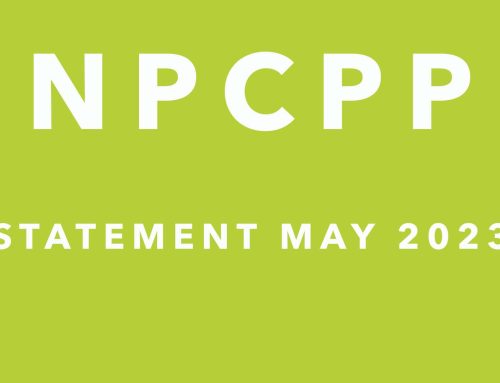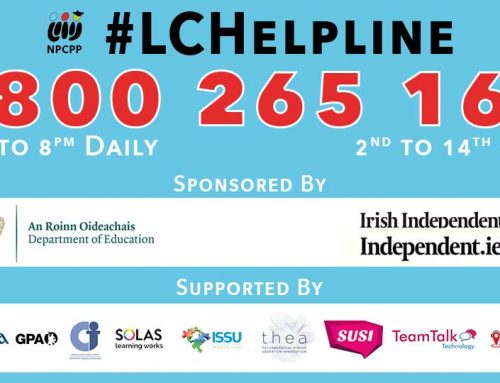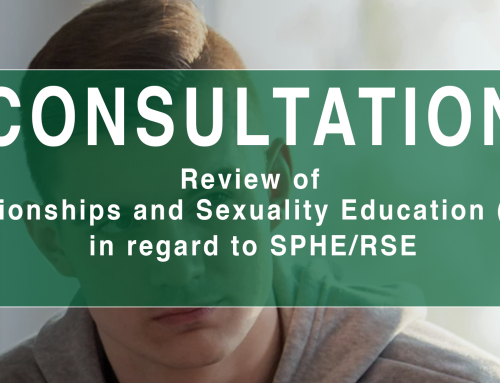Statement – NPCPP – Structure and Governance
March 2023.
As the primary educators of our children, in fact and under the constitution of Ireland, the key stakeholders in education are parents/guardians.
The voice of post primary parents/guardians must be heard and has to be represented independently by those democratically elected by parents/guardians and not those chosen or controlled by the Department of Education or any other agency.
The challenges and changes now facing post primary education require focussed, informed and experienced representation for parents/guardians.
The COVID-19 crisis saw NPCPP proactively engage and embed parent/guardian representatives across all areas of education. This ensured support for families and students through the worst crisis of our generation and also presented NPCPP with the opportunity to engage widely and to research all areas of representation for parents/guardians of post primary students.
The diversity in Irish society and schools has broadened very substantially since the turn of this century and post primary representation must reflect that.
Two years ago NPCPP, following extensive research and supported by appropriate professional assistance, created and began to implement a 5 year Development plan to address some historical issues and broaden democratic representation for post primary parents/guardians.
Amalgamation with NPC Primary was also seriously considered and discussed at that time with all relevant stakeholders but these consultations led to suggested outcomes which were unacceptable and inappropriate.
Through the implementation of the plan in 2021/2022 NPCPP currently represents more parents/guardians and post primary school parent bodies than ever before. Parents/guardians and schools from post primary schools of ALL sectors and across ALL regions of Ireland have now signed up and registered with NPCPP.
Informed and considered NPCPP representatives are now active and embedded in all key areas of discussion and decision around the evaluations and changes that must take place to create a new student-centric post primary education system fit for purpose in today’s world.
Such a change, now brought to a traditionally paternalistic system, has led to resistance and efforts by some to silence and control representation of parent’s/guardian’s views. However, NPCPP is widely respected within most areas of discussion and activity and is regarded by the majority of stakeholders as a welcome and vital voice when considering the future for our youth.
Through unwarranted delays and withholding of funding over the past two years efforts have also been made to undermine NPCPP. Uninformed, incomplete and dubious utterances and reports have emitted from some who are tasked with ensuring fairness and equity in post primary education.
Contrary to some commentary and reporting, NPCPP has never refused to participate in an independent governance review.
Governance at NPCPP is exemplary, overseen quarterly by registered independent professional bodies, and all required filing and returns are lodged and up to date. All procurement follows correct practices which are overseen and approved by NPCPP’s auditors and all professional support engaged to assist the council is independent and unconnected to any board member.
NPCPP has in fact engaged with a current review and has presented comprehensive comment, responses and documentation to ALL questions within the deadlines indicated. It appears however that some unknown motive may have led to the omission of much of this submission which, in turn, results in the information used by the reviewer, the DoE and the minister being two years out of date and casts some considerable doubt on the actual independence and value of thisreview.
The information provided confirms that the recent restructuring of NPCPP was undertaken correctly in all aspects and has not, in any way, altered the primary purpose and objects of NPCPP.
Without it no review can be considered independent or fair.
Despite the majority of post primary schools now having signed up as registered with NPCPP, it appears that not one parent or guardian from any of these schools was interviewed.
Without their inclusion there can be no fair reflection of views or independent conclusion.
NPCPP deeply regret that the Minister for Education has declined to meet with NPCPP since her appointment despite numerous requests over two years to present the research undertaken, and the plan now in place to properly and effectively represent the post primary parent body in today’s Ireland. Previous ministers have met with NPCPP at least once a year.
DoE officials have also refused to hear, view or discuss this plan and the new structure required to properly reflect and represent the broadening diversity in our post primary schools despite many requests to do so.
Refusing to be informed cannot lead officials to reasonable or responsible decision making. NPCPP remains available at any time to present this comprehensive research and plan to all concerned.
Inclusive of the four traditional sectors, the new structure at NPCPP has expanded to include many others who have previously been unrepresented. A regional structure which mirrors most other stakeholders in education has been put in place. This broadening of the democratic process of representation is required to meet NPCPP primary purpose and objects to ensure that there is a parent’s association in every post primary school, that parents from all sectors, backgrounds and regions are represented in a substantially more diverse society than existed when the original constitution was drafted.
The current board combines directors who emanate from all four traditional sectors together with other independent directors to ensure fair representation for ALL parents/guardians across Ireland.
NPCPP board members are all volunteers who do not receive, and never have received, any payment for their dedication and commitment. A professional secretariat of 5 personnel is in place to assist and engage with parents/guardians and school parent associations and to support the directors and representatives engaged in national consultations.
ENDS





